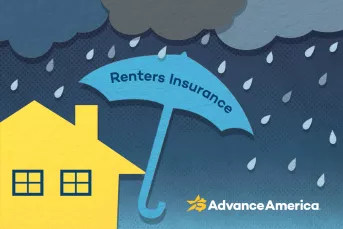
9 Money Mistakes (And How to Fix Them)
Being smart with your money isn’t always easy — and no one gets it right every time. But the good news is, many common financial mistakes are avoidable. By understanding what to watch out for and having a plan in place, you can make more confident, informed decisions with your money.
1. Not having a budget
A budget is a spending plan based on your income and expenses. It can help you make the most of your money and use it to meet your goals. Unfortunately, according to a budgeting report by NerdWallet, around 25% of American households don’t have a budget. Having this financial problem might mean you accidentally overspend, fail to save, or take on more debt than you can afford.
Consider using a common budgeting method like the 50/30/20 budget, where you designate 50% of your monthly income toward necessities, 30% toward non-essential spending, and 20% toward your savings. This can help you track your expenses and start building up your savings.
2. Overspending
Overspending means you spend more than you can afford. It’s not uncommon for people to live beyond their means and spend too much on food, clothing, entertainment, and non-essential purchases.
This is where creating and sticking to a budget will come in handy, because it can help you avoid overspending by putting money limits on different spending categories.
3. Going credit card crazy
While credit cards can be a valuable tool when it comes to building credit and earning bonuses and rewards, they also make it easy to overspend. Because credit cards typically have high interest rates, interest will get added to your debt if you don’t pay off the balance every month.
You should never use more credit than what you can afford to repay, and you should always make payments in full rather than paying the minimum.
4. Ruining your credit score
When you apply for a loan or credit card, most lenders check your credit to assess your reliability. Poor credit can lead to denials, high interest rates, and costly terms. To improve your score, make on-time payments, keep your credit utilization low, and limit new account applications.
➢RELATED: How Does Credit Utilization Affect My Credit Score?
5. Not building credit
Taking on small, manageable debts and repaying them on time and in full is an important aspect of building credit.
One of the easiest ways to establish or rebuild credit is with a credit-builder loan. You could also apply for a credit card with a low spending limit and only use it for gas or similar purchases. Through small, consistent payments, you can start to build a more impressive credit score.
6. Not saving or investing
No matter how old you are, it's natural to want to spend money on vacations, shopping sprees, and other luxuries. While there’s nothing wrong with enjoying the finer things in life occasionally, it’s still important that you build your savings account and invest in your future.
A good rule of thumb is to put at least 20% to 30% of your paycheck into savings or investments, such as a retirement account. If you have other things happening in your life and can't save that much, don't worry! Invest and save what you can for now and try increasing the amount down the road.
7. Taking on too much debt
While you need to take on some debt to build credit, you shouldn’t make the financial mistake of borrowing more than you can handle. Whether it’s buying a house you can’t afford, going to a college that’s too expensive, or overspending on a new car, excess debt can leave you feeling shackled for years to come.
If you want to reduce multiple debts, consolidation could be a smart move. Debt consolidation means taking on a single new loan or Line of Credit to pay off all existing debts, resulting in a single manageable payment.
Or, if debt consolidation isn’t right for you, you might try using the debt snowball or debt avalanche methods. These debt repayment strategies are meant to help you get back on track and recover from common financial mistakes resulting in excess debt.
8. Not having an emergency fund
No matter how careful you are, unexpected expenses will come up. Whether it’s a car repair, a medical bill, or having to replace your water heater, emergency expenses can be an absolute budget buster.
Having an emergency fund can provide some cushion and protection against unexpected expenses. Financial experts typically recommend saving enough to cover three to six months’ worth of expenses.
➢RELATED: How Much Should I Have in an Emergency Fund?
9. Not planning for retirement
Most people have an “I’ll cross that bridge when I get there” mentality when it comes to 401ks and Roth IRAs. Unfortunately, this is one of the worst and most common financial errors people make. It takes years for retirement savings to grow, which means that the longer you wait, the harder it will be to save enough to retire.
Whether you do it on your own or through your employer, set up a retirement fund as early as possible. The sooner you start investing in your retirement, the longer your money has to grow — and the sooner you can afford to stop working.
Mistakes happen, but you can bounce back!
No matter how cautious or responsible you are, everyone makes financial errors sometimes. The good news is that as long as you discover your mistake early and find the right solution, you'll be able to right the ship and get back on track with your finances.
Notice: Information provided in this article is for informational purposes only. Consult your attorney or financial advisor about your financial circumstances.


